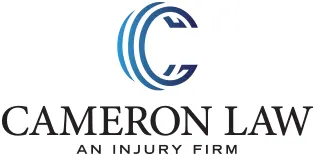Proving Loss of the Enjoyment or Quality of Life

When it comes to injuries that don’t have an exact price tag—sometimes called “non economic damages”—pain and suffering is the primary thing that most of us think of. But there is another area where a victim may be entitled to compensation for non-economic damages: Loss of the enjoyment or quality of life.
As a general rule, every injury, no matter how large or small, to some extent, reduces our enjoyment of our life. That loss may be temporary or it may be permanent, it may be major or minor, but it is almost impossible to sustain an injury and not have the ability to enjoy life reduced to some extent.
Compensation for Loss of Enjoyment of Life
The law recognizes this, and allows a jury to compensate you for the loss of the enjoyment or quality of your life.
But what is the loss of enjoyment or quality of life? Put simply, it is the extent to which you could once do the things you enjoyed, which you cannot do now at all—or not do as well, or as often.
Some of those things can be major life-altering things, such as the inability to carry around a young child, or the loss of the ability to play your favorite game with your husband or wife. It can be recreational things as well, such as the inability to play your favorite sport, or sit in a movie for two hours, or walk around and shop. Whatever it is you do or enjoy, you simply cannot do, either at all, as well, or for as long.
Not a Total Loss
You can lose the ability to do something you enjoyed completely, but you don’t have to show a complete loss to be entitled to damages.
You can show, for example, that you can go shopping, but you can only walk for an hour now, or you cannot do it for more than one day a week. You could show that you can still walk with your spouse, but not as far, without having to sit down.
Often, loss of the enjoyment or quality of life is accompanied by pain and suffering. But you can have one without the other.
For example, someone may have an injury that has completely healed, as far as pain is concerned, but there is still a disability—for example, a limp because of a leg injury—that prevents someone from doing an activity they once enjoyed.
Proof to the Jury
A jury can’t and won’t just assume you have lost the enjoyment or quality of your life, even if it seems obvious—it’s something you have to prove. This is often done through your testimony, or that of your friends or family, who may see that you don’t participate in the activities that you once did.
Let us help you get compensation for all of your losses after an accident. Contact the personal injury lawyers at Cameron Law today at 702-745-4545 for a free consultation.
Sources:
lawyers.com/legal-info/personal-injury/introduction-to-personal-injury-law/what-is-loss-of-enjoyment-in-a-personal-injury-case.html
smitheconomics.com/life-values-measuring-the-loss-of-enjoyment-of-life/


